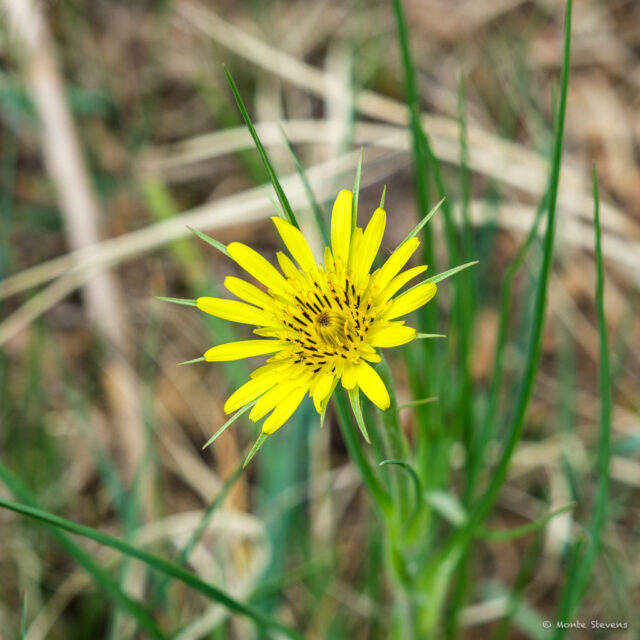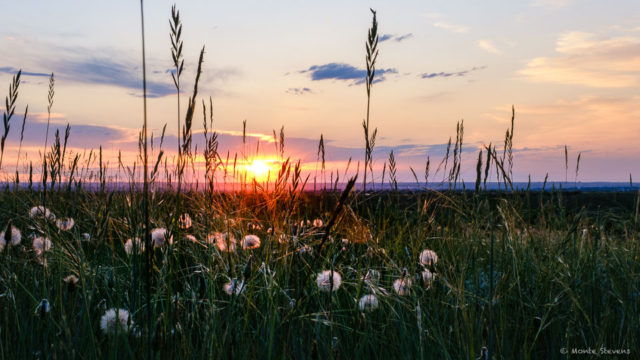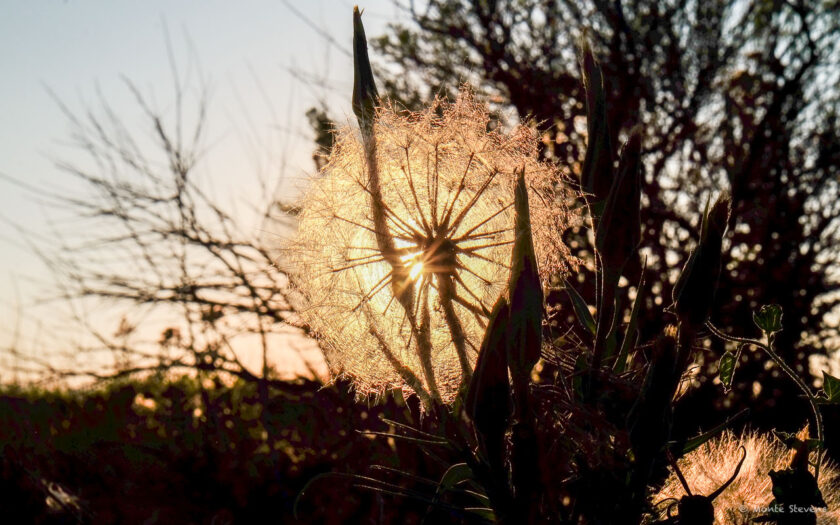Western salsify was introduced into North America where it has become widespread, being reported from all the continental United States except for a few in the far south-east, and all provinces of Canada except Newfoundland and the northern territories. Like most salsifies, the western salsify grows as an annual or occasionally biennial forb. The inflorescence opens early in the morning and often closes up by late afternoon. Later the plant forms a seed head resembling that of the dandelions but is distinctly larger. Alternative names include western goat’s beard, wild oysterplant, yellow salsify, yellow goat’s beard, meadow goat’s beard, goat’s beard, goatsbeard, common salsify, or salsify. The basal leaves can be eaten raw or cooked. Native Americans ate the roots, which are best cooked, and are said to taste like oysters. I took this image while at the natural area this morning. Happy Sunday!
-
-
Among the Salsify
among the salsify
ms
return to a sacred place
morning sunriseAwoke early so arrived at Pineridge Natural Area just after 5:00 am. It was already 69 degrees and hardly any breeze. Quiet all around me. A stillness. I walked down the trail from my bench to where there are several salsify plants and patiently waited with them for this morning’s sunrise. I take deep breaths, grateful for life. Hope you have a wonderful weekend!
-
Sunset in a Western Salsify


